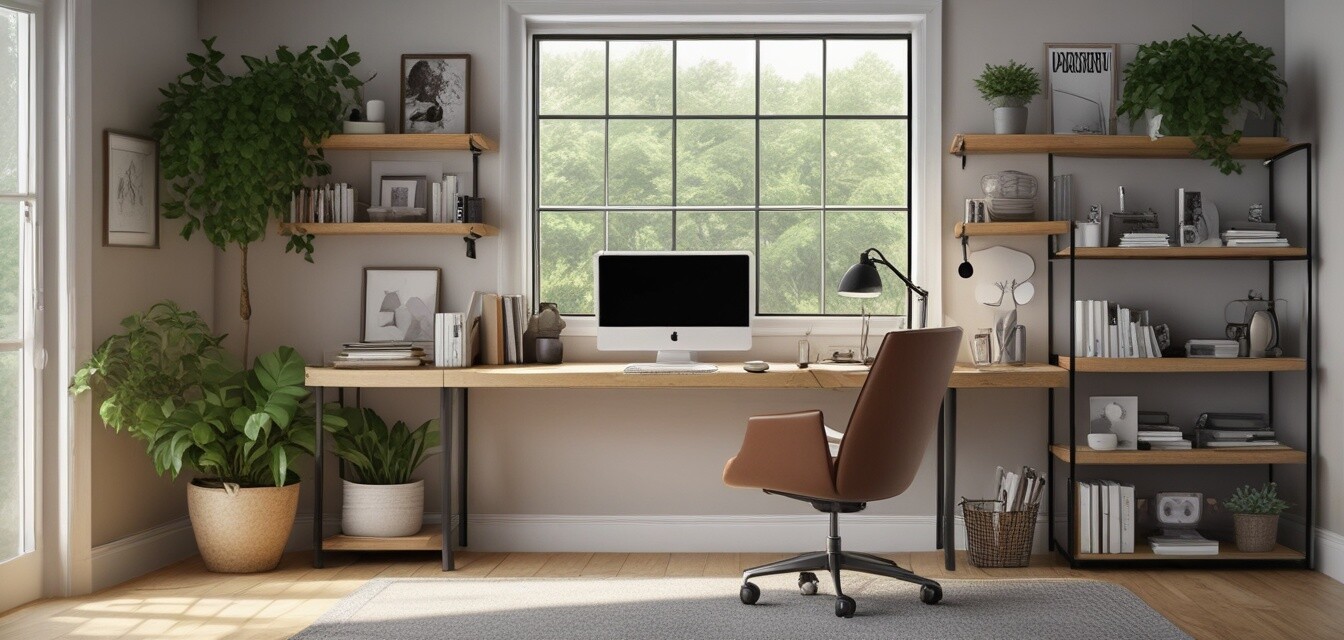
Tips for Designing a Multi-Functional Office Space
Creating a multi-functional office space is essential for those who want to blend work and leisure seamlessly. Discover innovative ideas and practical solutions that help design your workspace to cater to both productivity and relaxation needs. Below are key takeaways and actionable tips.
Key Takeaways
- Identify distinct areas for work and leisure.
- Choose ergonomic furniture to enhance comfort.
- Incorporate storage solutions to reduce clutter.
- Utilize creative lighting for aesthetic appeal.
- Personalize your space with decor that inspires.
Understanding the Essentials of a Multi-Functional Office
In recent years, the need for a versatile workspace has grown, especially as more people work from home. A well-designed multi-functional office enhances productivity and creates a relaxing environment, suitable for both work and personal activities.
Segmenting Your Office Space
To effectively design a multi-functional office, it’s crucial to segment your space into specific areas. Here are some popular segments:
| Zone | Purpose |
|---|---|
| Work Zone | Focus on tasks and projects. |
| Relaxation Zone | Read, take breaks or brainstorm ideas. |
| Storage Zone | Organize materials, files, and supplies. |
Choosing Ergonomic Furniture
Investing in ergonomic furniture can significantly improve your comfort while working for long periods. Here are some essential items to consider:
- Ergonomic office chair
- Adjustable desk
- Monitor stands
- Footrest
Maximize Storage Solutions
Clutter can hinder productivity, so having effective storage solutions is vital. Here are some creative ideas:
- Use floating shelves to save floor space.
- Incorporate filing cabinets that can serve dual purposes (e.g., as side tables).
- Opt for multi-functional furniture with built-in storage.
Lighting Options for Your Office
Effective lighting enhances productivity and creates a more inviting atmosphere. Consider these lighting solutions:
- Consider natural lighting with large windows or skylights.
- Use desk lamps for focused task lighting.
- Incorporate soft ambient lighting to create a relaxing environment.
Personalizing Your Workspace
Your office should reflect your personality. Here are some ideas for personalizing your workspace:
- Add inspirational artwork or quotes.
- Include plants to bring a touch of nature indoors.
- Display items that represent your hobbies or interests.
Pros
- Encourages productivity and creativity.
- Provides a comfortable and inviting atmosphere.
- Efficient use of space allows for work and leisure.
Cons
- Requires careful planning and design.
- May need initial investment in quality furniture.
Conclusion
Designing a multi-functional office space is all about creativity and practicality. By segmenting your space, investing in ergonomic furniture, maximizing storage, ensuring effective lighting, and personalizing your workspace, you will not only enhance productivity but also create an environment that you enjoy spending time in.
For further exploration of home office setup items, check out our computer peripherals or find out more about ergonomic accessories. For those who want to optimize their workspace further, our multi-monitor setups can provide additional benefits. Lastly, don't forget to check out our docking stations for improved connectivity and organization.
Explore More Tips
If you're interested in further DIY tips and tricks for your home office setup, explore our DIY tips and tricks blog category.